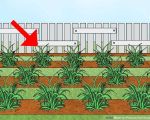
- Benefits of Composting for Lawn Health
- How Composting Improves Lawn Soil
- Steps for Composting for a Healthy Lawn
- Common Mistakes to Avoid When Composting
- Real-Life Case Study of Lawn Composting
1. Benefits of Composting for Lawn Health
Composting for lawn health offers numerous benefits that can transform your lawn into a lush, vibrant space. By using compost, you are essentially adding organic matter that improves soil structure, promotes healthy microbial life, and enhances nutrient availability. Not only does compost help your lawn stay healthy and green, but it also reduces the need for chemical fertilizers, which can harm the environment.
When you add compost to your lawn, it enriches the soil with essential nutrients like nitrogen, phosphorus, and potassium. This helps to promote better grass growth and strengthens your lawn's ability to resist diseases, pests, and drought. Additionally, compost improves water retention in the soil, reducing the need for frequent watering.
2. How Composting Improves Lawn Soil
Healthy soil is the foundation for a thriving lawn, and compost is one of the best ways to improve it. When you apply compost to your lawn, it enhances soil texture, making it more porous and allowing better air circulation. This improved aeration supports deeper root growth and helps roots access water and nutrients more effectively.
Moreover, compost helps balance the pH levels of the soil, ensuring that it’s not too acidic or alkaline for grass to grow. This balance supports the soil's microbial activity, which is crucial for breaking down organic matter and turning it into usable nutrients. With time, composting can turn poor-quality soil into nutrient-rich, fertile ground that promotes optimal lawn health.
3. Steps for Composting for a Healthy Lawn
To start composting for lawn health, follow these simple steps:
- Choose the Right Composting Materials: Select organic materials like grass clippings, leaves, kitchen scraps, and coffee grounds. Avoid adding meat, dairy, or diseased plants, as these can introduce harmful pathogens to your compost.
- Create the Right Environment: Ensure your compost pile is in a well-drained area that gets some sunlight. A compost bin or a simple pile in the backyard works well.
- Maintain the Pile: Turn the compost regularly to aerate it and speed up the decomposition process. Keep it moist but not too wet—about the consistency of a wrung-out sponge.
- Apply the Compost to Your Lawn: After about 3-6 months, your compost should be ready to use. Spread a thin layer (1/4 inch to 1/2 inch) over your lawn and water it in.
For those who prefer a more hands-off approach, composting services like Lawn Care Services can provide ready-to-use compost that’s tailored for your specific lawn needs. Consider reaching out for expert guidance and the right compost products to maintain a healthy lawn.
4. Common Mistakes to Avoid When Composting
While composting can be a straightforward process, many people make mistakes that can hinder its effectiveness. Here are a few common pitfalls to avoid:
- Overloading the Pile with One Type of Material: A good compost mix should include a balance of "greens" (nitrogen-rich materials) and "browns" (carbon-rich materials). Too much of one type can slow down the composting process.
- Not Turning the Compost Enough: Turning the pile regularly helps to aerate it and speed up decomposition. Without turning, your compost may become compacted and take much longer to break down.
- Using Inappropriate Materials: As mentioned earlier, avoid adding meats, oils, or diseased plants to your compost. These materials can create unpleasant odors and attract pests.
5. Real-Life Case Study of Lawn Composting
To understand the benefits of composting for lawn health, let’s look at a real-life example. Jane, a homeowner in the suburbs, had struggled for years with patchy, unhealthy grass in her front yard. Despite frequent fertilizing, her lawn never seemed to thrive.
After attending a local workshop on sustainable lawn care, Jane decided to try composting. She began by applying a thin layer of compost to her lawn every few months. Over time, she noticed significant improvements in the soil's texture and her grass grew much thicker and greener. Within a year, her lawn became lush and vibrant, and she was able to reduce her fertilizer use by half.
Jane's story is just one example of how composting can improve lawn health, and it's a great reminder that taking a more natural approach to lawn care can lead to long-term success.








